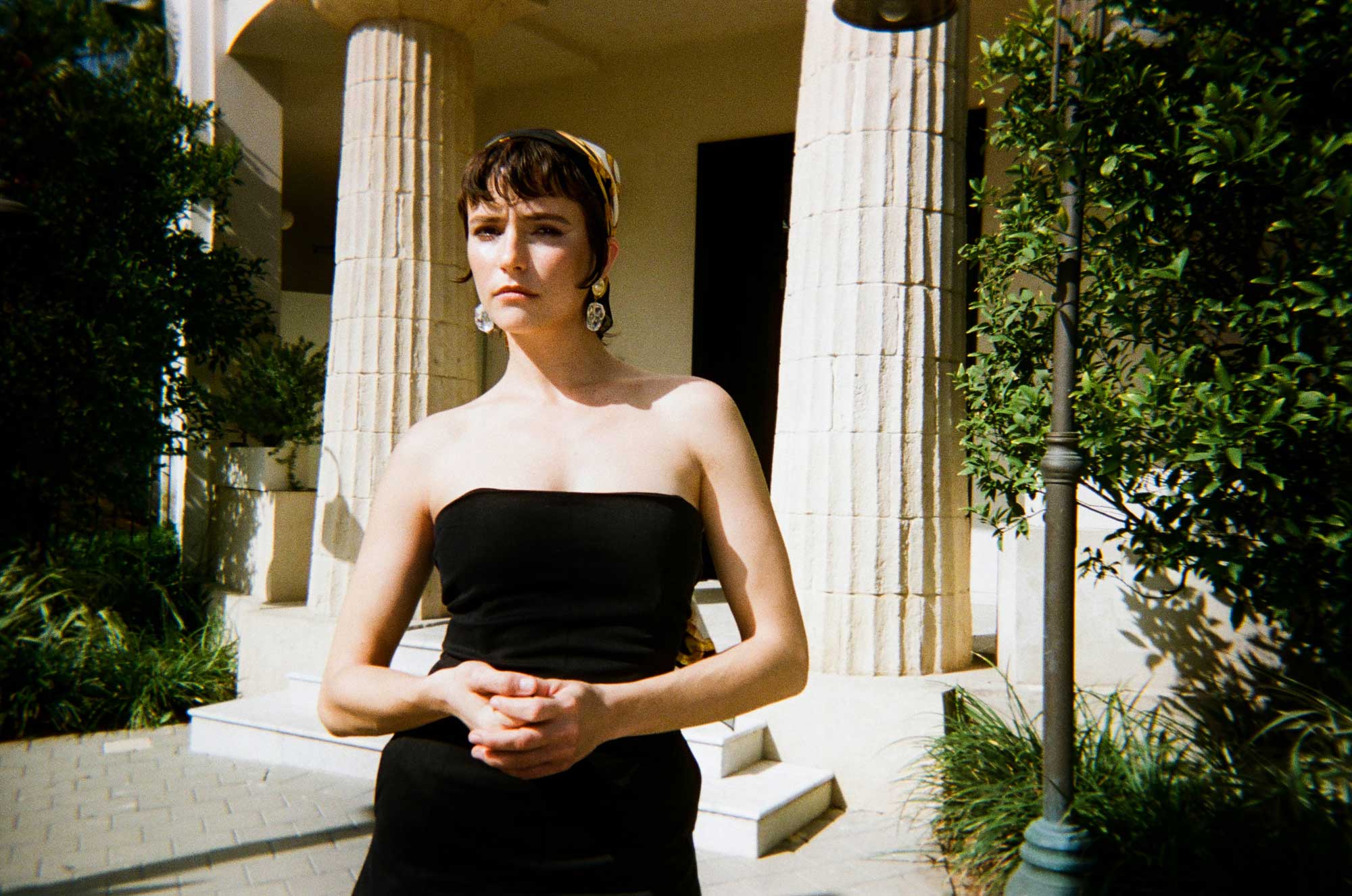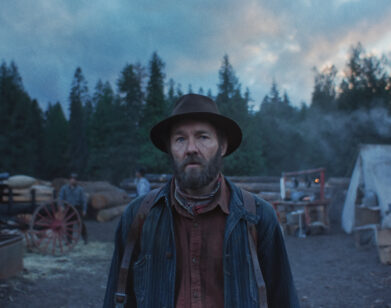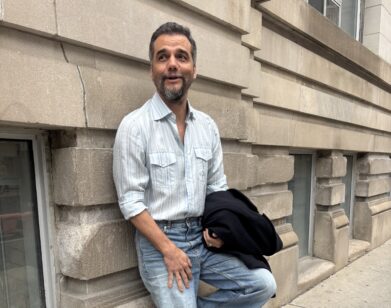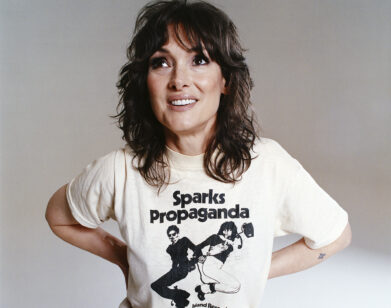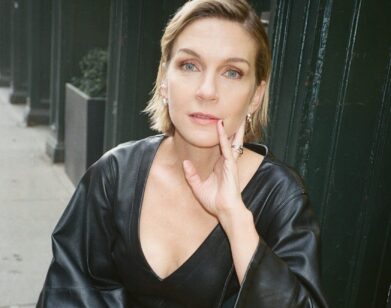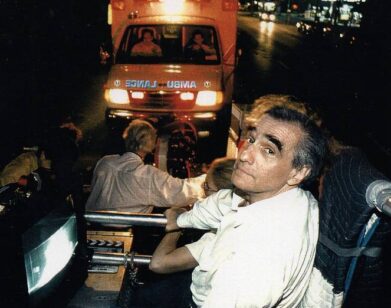In Conversation
Lihi Kornowski Talks to Diego Boneta About Her Breakout Role on Losing Alice
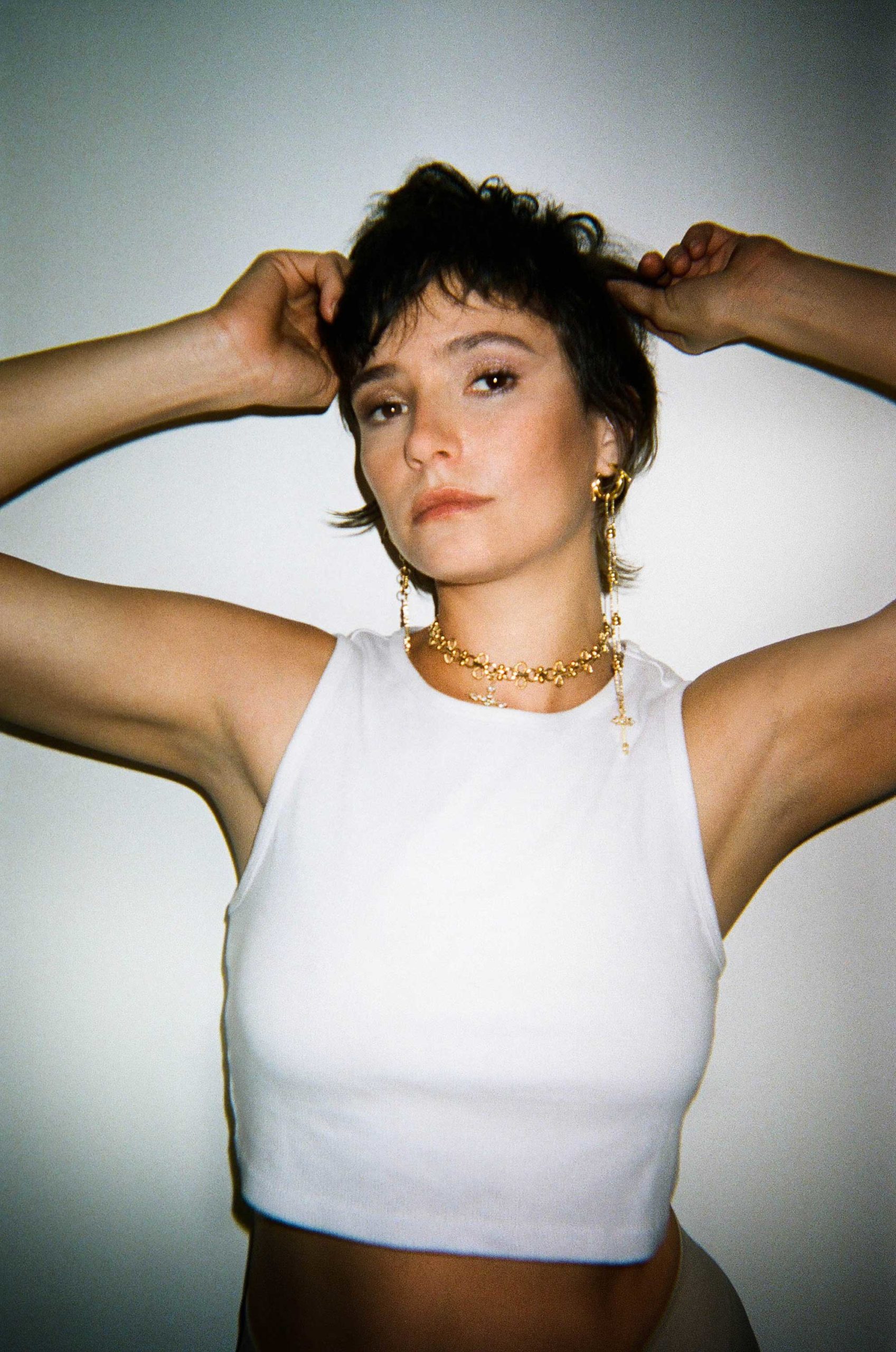
For Lihi Kornowski, the Israeli actress who stars as Sophie on Losing Alice, the role of an unhinged, sexually uninhibited mistress caught up in a psychologically-charged love triangle presented the 28-year-old with was the opportunity of a lifetime. The 8-part series, which concludes today on Apple TV+, follows the show’s titular protagonist—played by Ayelet Zurer—an acclaimed film director seemingly in the doldrums of a creative and romantic plateau. After a chance encounter with a young screenwriter named Sophie—Kornowski’s character—Alice seizes the chance to direct Sophie’s movie, casting her husband, played by Gal Toren, in the film. Directed by Sigal Avin, Losing Alice unfolds as an erotically charged, often dizzyingly thrilling take on Faust’s bargain, a tale in which Alice’s obsession and Sophie’s ambition spark greatness, but only at the risk of its embers burning everything to the ground. Here, Kornowski speaks with Diego Boneta, Latin recording sensation and star of Netflix’s musical biopic series Luis Miguel, about their shared musical past, the success of foreign language TV, and how David Lynch films are wonderfully “fucked up.” —JOSEPH AKEL
———
DIEGO BONETA: I’m so excited to be talking to you
LIHI KORNOWSKI: Oh my god, me too.
BONETA: It’s my first time doing something like this. I’ve watched the show. You are fantastic in it.
KORNOWSKI: I have a little confession. I watched the two first episodes of Luis Miguel and I just loved you. You were amazing.
BONETA: Tell me about yourself. How did you become involved with Losing Alice? Did you read all of the eight episodes before you came on board? Did you nail the arc of your character?
KORNOWSKI: Yeah, I had a lot of auditions for the role of Sophie. Sigal [Avin] took her time to make the decision. Sophie is totally a lunatic. She allows herself to act in any way she wants. And she has so much confidence. She talks however she wants, to whatever she wants. It was such a liberating part to play because I could do anything. Interestingly, Sigal didn’t want me to read the end of the script until a few days before we were shooting. But I was very insistent about it because I had to know the end. I had to know that she’s not the only crazy person. What baggage does she carry with her? She can’t be only bad. She can’t be only. When you have an evil character, you need to find the reason why. So, I was really curious. I hope you’ll watch the end of the series and you will understand.
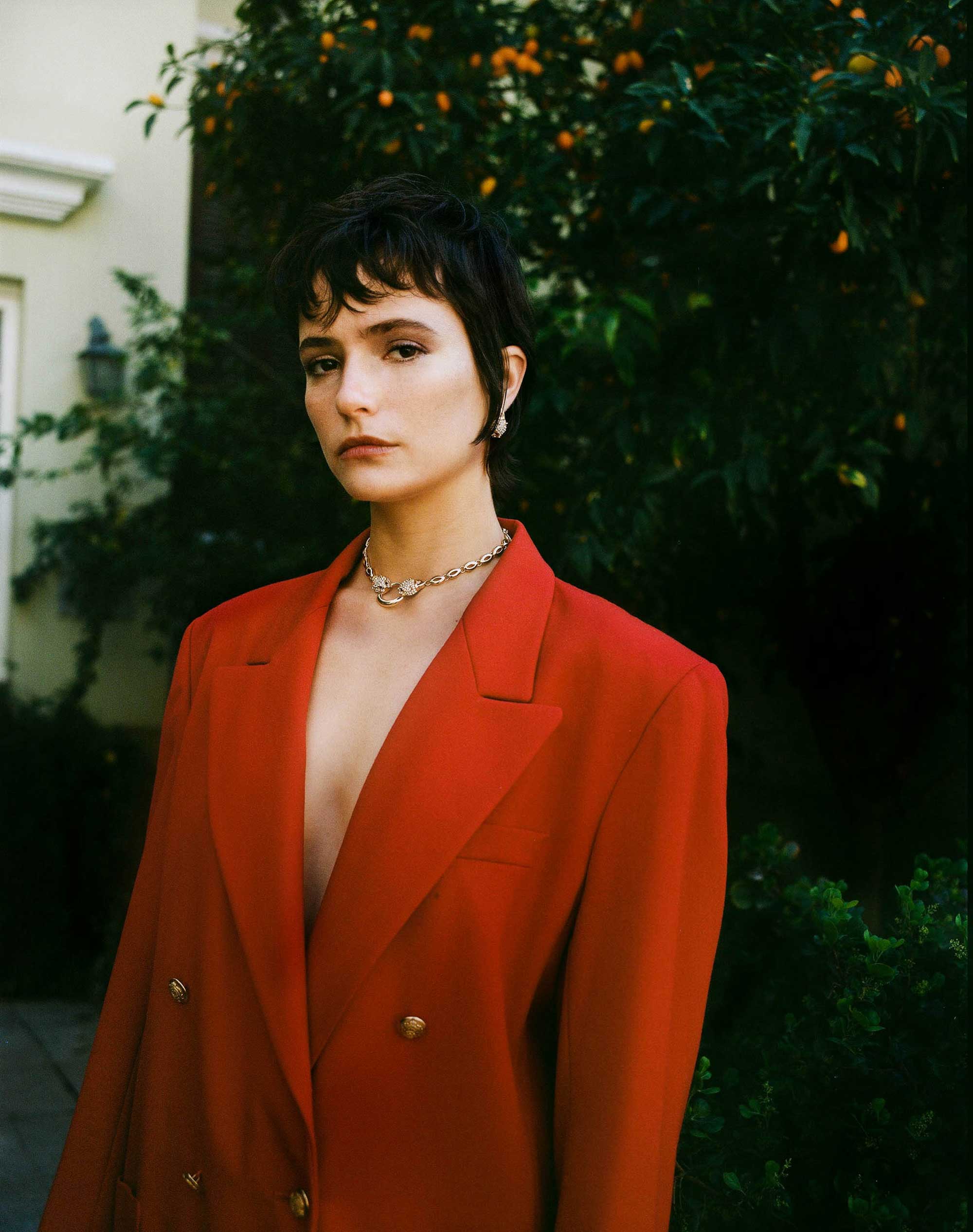
BONETA: I will 100 percent do it. I was blown away by how free you are on screen. You have all these different layers where you sometimes look a bit like a psycho, but then sometimes you’re the most charming and loving girl. Tell me more about what you did to prepare for your role. What was the most challenging part. and what was the best learning experience from this? I know that it’s a loaded question so take your time.
KORNOWSKI: Sigal told me to watch all the movies of David Lynch. She wanted to create a kind of language for the series that calls to mind David Lynch’s visual language. So I watched his movies every day and it fucked with my mind. Also, I felt that in order to play Sophie, I had a couple of months where I needed to have a lot of confidence. I don’t know how to say it. How I walked the streets and how I talked with people all the time. I felt like I needed to act like Sophie, and it was a bit strange. I had to find the femininity in me because in my real life, I’m very tomboyish. So that’s how I worked on her. It was a couple of months where I was like a crazy woman, but it was worth it. One of the powers of Sigal’s writing is she brings strong, independent, and liberated and women. They’re shameless and they don’t care.
BONETA: And how was it like to work with Sigal? Because it’s totally different when you work with a director who also created and wrote the entire project.
KORNOWSKI: She’s so talented. And she has such a crazy brain. The whole time were saying to her, “What the fuck? How could you make all of these from your only brain, from your only thoughts?” It was amazing to work with her because she had a really clear vision of her creations, but at the same time she gave us the right amount of freedom that we needed to play whatever we want.
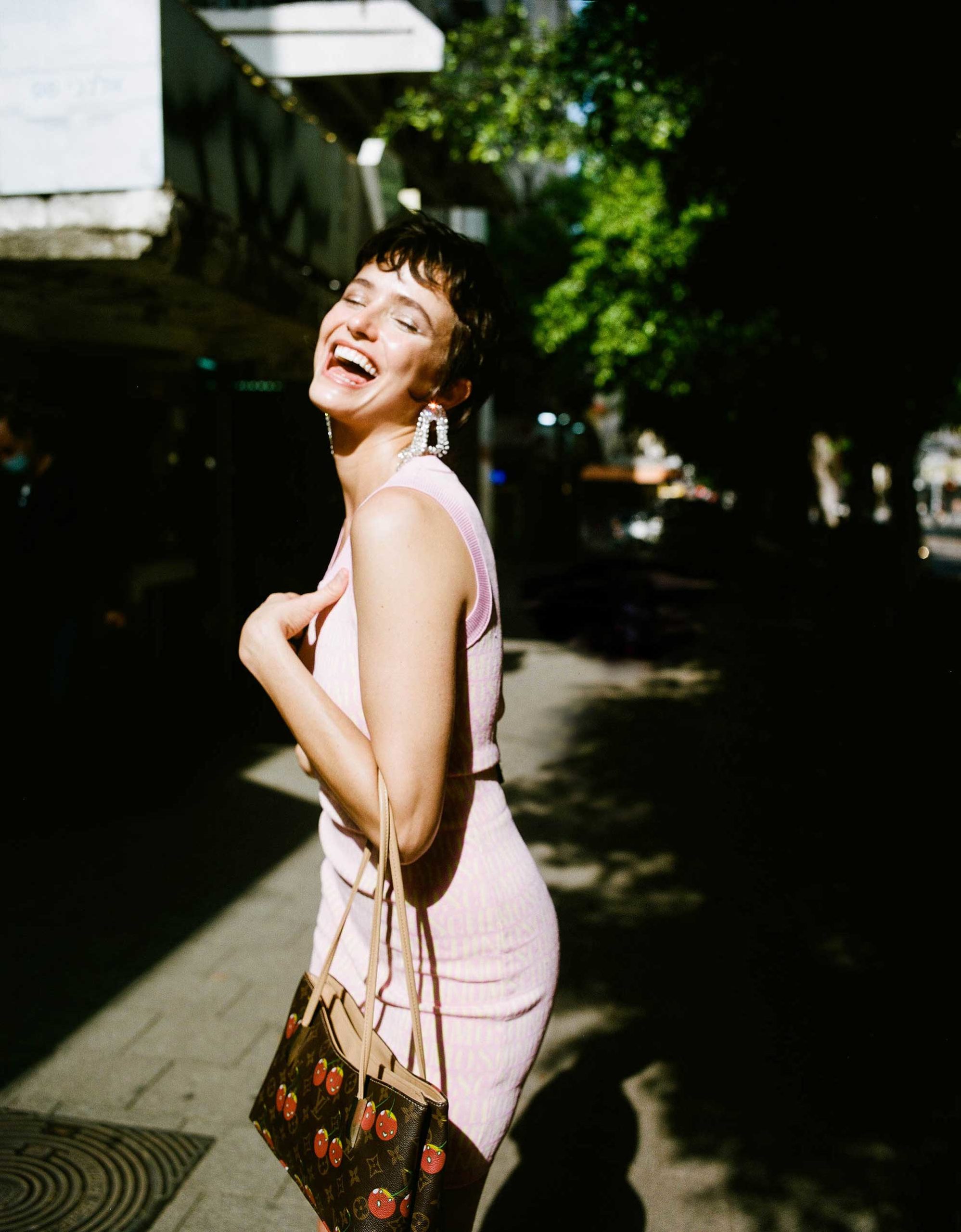
BONETA: That’s the best kind of experience, whenever you have that relationship with the filmmaker that you’re working with and you have that trust to where you can just go in, play, and have fun. Sophie is such a fun character, and it makes perfect sense what you said about David Lynch. Those movies are so fucked up.
KORNOWSKI: Also, she did a lot of rehearsals for all the sexy stuff so that we had the confidence to play it, so that we had the boundaries. She put up the boundaries and she was the choreographer of all those sexual moments. We did it as if it was a dance. Watch episode seven and then you’ll understand what I’m talking about. Good luck with that, man. Good luck with that.
BONETA: Wow did you get involved in acting? How did that happen?
KORNOWSKI: I used to sing opera.
BONETA: No way. You used to sing opera?
KORNOWSKI: Yeah. And I also wanted to say your singing is just mind-blowing.
BONETA: That’s great because I started singing as well, not opera, but holy shit, that’s crazy.
KORNOWSKI: I was totally a geek, and I sang opera from a very young age until 20. And then, when you finish the high school, you need to go to the army. In the [Israeli] army you can enlist as an “excellent musician.” I don’t know how to translate it to English. In Hebrew, it’s like “excellent musician.” And so, I was in the army as an “excellent musician.” After, I wanted to explore more things, so I just entered some agency and they started to take auditions. It just rolled away from there. And I fell in love with acting. I figured that, if I want to be professional, I need to go to study acting because here in Israel, that’s the common thing to do. I went to Yoram Loewenstein Acting School and there I learned studio acting for three years. And that’s it. I fell in love.
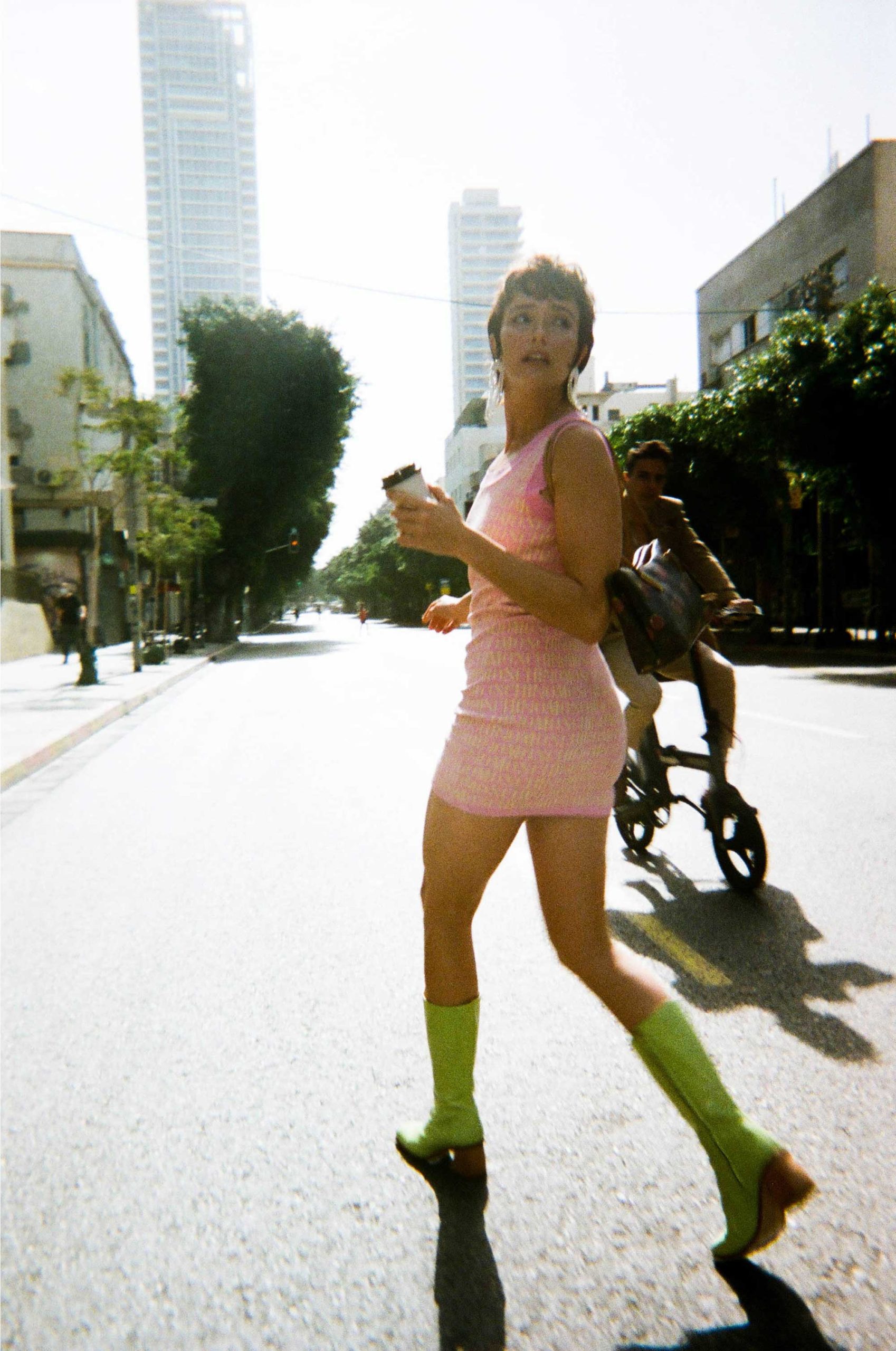
BONETA: Are you pumped that [Losing Alice] is on Apple TV+ right now? And that it’s available for American audiences? What this is doing for the show is incredible.
KORNOWSKI: It’s incredible. It’s the first time that I’m doing a project that is abroad. It’s coming out globally and it’s amazing. I can’t believe it’s actually happening. I was thinking to myself, if Losing Alice is coming out on Apple, will people watch it and actually love it [or not] because it’s in Hebrew? You think, “How will Americans get it and how the world will get it?” But I think that it’s such a big worldwide exposure and it’s so amazing that actually people fucking watching it.
BONETA: Believe me. I totally understand what you’re talking about. It’s the quality of the story which is what’s most important, regardless of what language it’s in. People care more about it being authentic and it being in Hebrew and reading subtitles, because they know it’s real and they know it’s more authentic rather than doing it in English.
KORNOWSKI: I think that there is a really positive momentum for global creators with the internet, social media, and streaming. All of those things helped remove barriers. And I believe people around the world are not only more receptive to different languages, but they get it.
